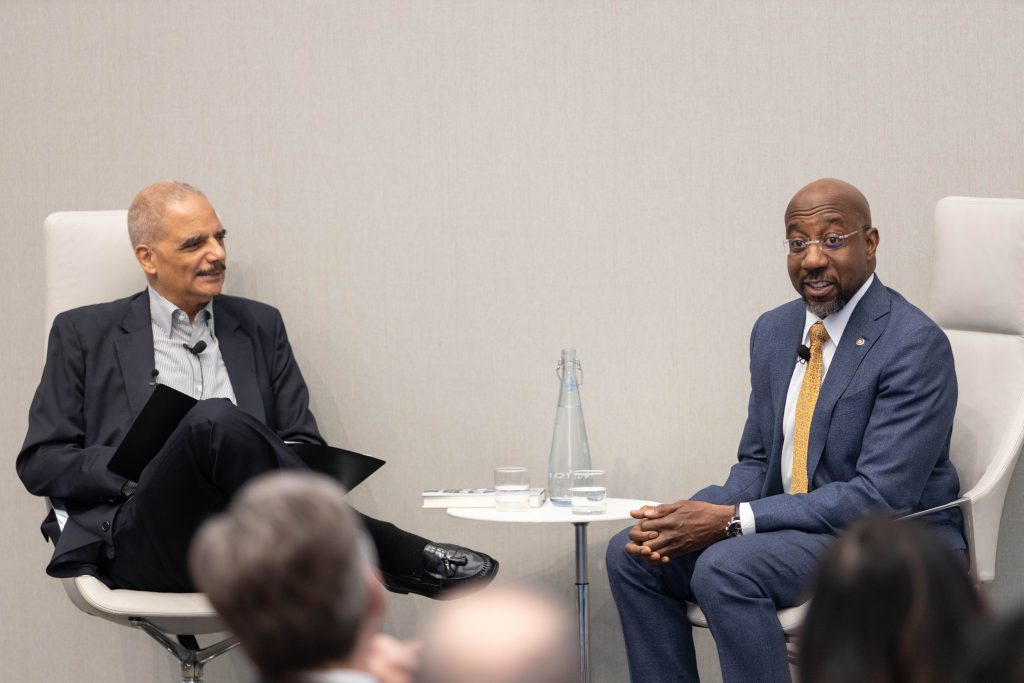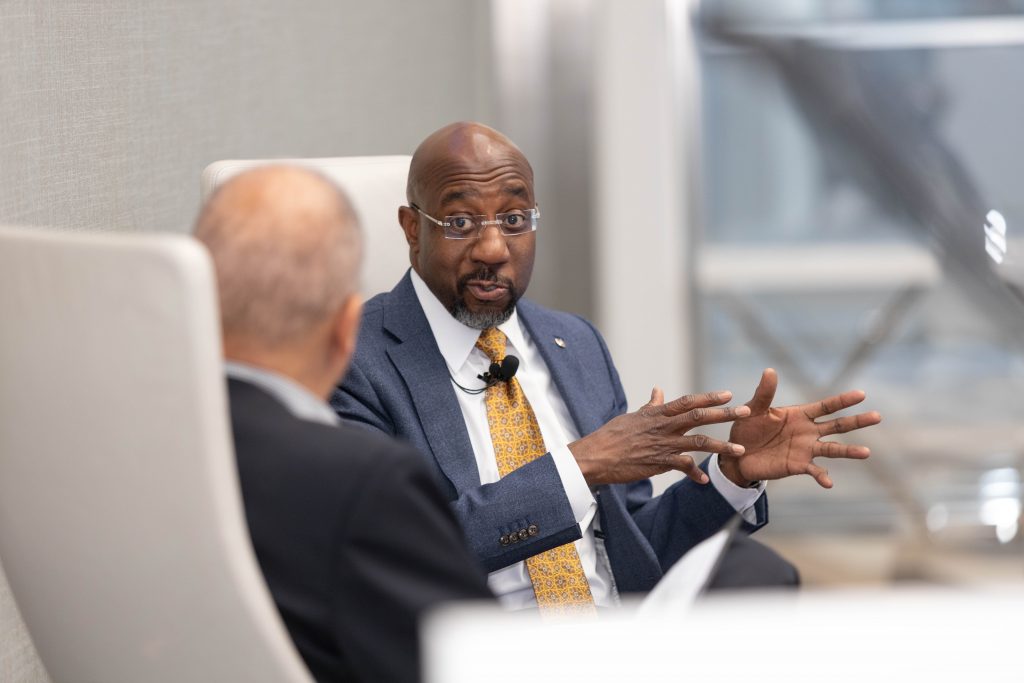Today, Senator Reverend Warnock joined former U.S. Attorney General Eric Holder in a conversation Black History Month at Covington and Burling LLP’s Washington D.C. office
Senator Reverend Warnock: “My work in the Senate is a continuation of my lifelong commitment to service and so while they’re two big jobs, to me, it’s almost a seamless garment. For me, it’s the same project”
ICYMI: “Black History is American History”: Senator Reverend Warnock Celebrates Black History Month

Washington D.C. — Today, U.S. Senator Reverend Raphael Warnock (D-GA) joined former U.S. Attorney General Eric Holder in a conversation about faith and more, in observance of Black History Month, at Covington and Burling LLP’s Washington D.C. office. Senator Warnock, Georgia’s first Black senator and the 11th Black senator in U.S. history, spoke alongside Holder, the 82nd Attorney General of the United States and the first Black American to hold that office, on the immense contributions Black Americans have made to this nation. The conversation also touched upon Senator Warnock’s journey from the second youngest of twelve siblings inSavannah to student at Morehouse College to Senior Pastor of Ebenezer Baptist Church to United States Senator.

See below for highlights of Senator Warnock’s conversation with former Attorney General Holder:
“I was just captivated by Dr. King’s voice, by his moral vision, by his eloquence, his ability to move people and use their faith in creative ways to stand up for themselves. I was just fascinated by it.”
“My work in the Senate is a continuation of my lifelong commitment to service and so while they’re two big jobs, to me, it’s almost a seamless garment. For me, it’s the same project. I’ll give you one example. I just left a hearing as a member of the Agriculture Committee. We’re getting ready to reauthorize the Farm Bill, that happens every five years. When we reauthorize the Farm Bill we’re dealing with what we need, for farmers’ needs and our ag space, but also nutrition, food security, all of those issues. Five years ago, when the Farm Bill was up for discussion, and there were folks trying to cut needed benefits for poor families, poor people and children who were food insecure. I was here, in Washington, D.C., except I was here in my other role as an activist preacher. So while they were working on the Farm Bill, I was in the rotunda of the Capitol, literally getting arrested for protesting what some were trying to do in the Farm Bill, and now because of what the people of Georgia did, I’m helping to write the Farm Bill.”
“To me, I just get to preach in a different way. I get to embody the ethic of the gospel, which when I say that I don’t mean in any narrow sectarian term. I’m talking about all the values that are resonant, I think in all the related conditions: love, justice, mercy, kindness, compassion.”
“[Preaching] reminds me of why I do what I’m doing. Although I am in elected office, I don’t want to spend all of my time talking to politicians. I’m afraid I might accidentally become one.”
“I prefer hope to optimism. I remain deeply hopeful. Sometimes when people say they are optimistic, they’re ignoring the facts. I’m neither an optimist or a pessimist, in essence. I recognize that we are up against huge forces, people who know that they’re losing the argument. And so they’re trying to generate the outcome and I’m realistic about that. But I remain hopeful. We’ve had tough times before. I’m a part of an activist tradition where you have to take the long view and change comes in fits and starts. But it happens. And doesn’t happen automatically or inevitably.”
###